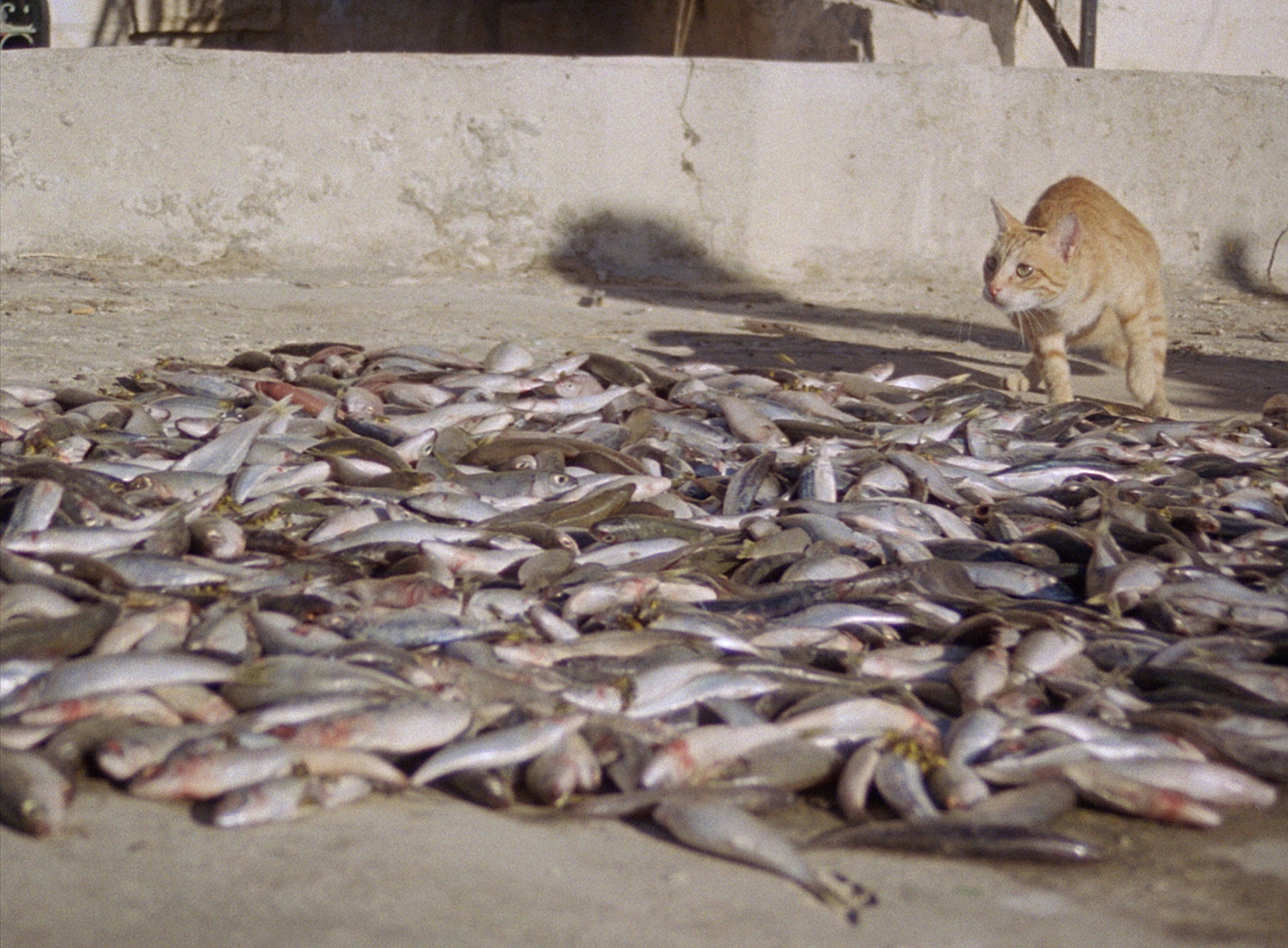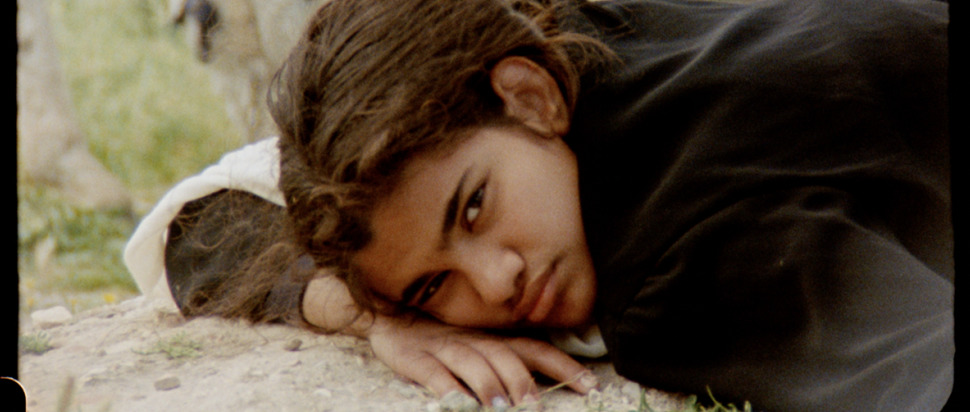Palestinian artist Noor Abed on folktales, tension and celluloid
Ahead of a retrospective of her work at Alchemy Film and Moving Image Festival, Palestinian artist Noor Abed reflects on how growing up in an occupied nation has informed her practice, which intersects performance art, folklore and filmmaking
In the spring and summer of last year, Palestinian performance artist and filmmaker Noor Abed was shooting what would become her latest film, A Night We Held Between, on ancient sites on the outskirts of Jerusalem. She returned to Amsterdam in September, where she's completing a residency at the Rijksakademie, to edit the footage. Then, in October, everything changed.
“I couldn’t look at the footage of these sites that I couldn’t access anymore,” says Abed when we speak to her over Zoom. “My days became checking on my parents, family, and friends and trying to help with what I can.” She was attending protests and fundraisers for Gaza, but this wasn’t enough. “I was on strike on my own for October, November and then I decided what am I doing here in Europe? I have to go there; I want to be in Palestine with my community.”
Abed returned to her Rijksakademie residency at the start of the new year to complete the film. She felt more grounded on her return. “It was really hard to enter and exit," she explains, "but at least I got to have the deep conversations I needed to have with my family and friends. We need each other at this time.” But she was also altered by the trip: “I filtered a lot of what people said to me on that trip into my work. I think I work differently now.”
This has been Abed’s experience since childhood: she’s forever being reshaped by the social-political situation in her homeland. From a young age, she thought visually – “I had this imagery I wanted to put out of my head somehow” – and she always felt she wanted to be an artist. Although want isn’t quite the right word. “It had to be,” she says. “It's not a choice. If it was a choice, then I would doubt myself.”
Abed’s first foray into art was drawing and painting, but then she discovered performance art when she was a teenager, around the time the apartheid wall was built in Jerusalem. Since nursery, she had attended school in the city, but in her final year of high school, she was cut off. “They told us you cannot go to Jerusalem anymore," Abed recalls. "You have to go to the West Bank. I was 18 years old and I was like, but why? How? All my friends I love, all the cafes we go to, are in that city. This is the city I know. I finished high school and went to university in Ramallah, but it felt like I’d travelled to another country.”
The link between this restriction of Abed’s movement and her interest in the movement of the body is clear to see, but she was also drawn to performance art’s immateriality. “In Palestine, artists don't know on which day soldiers will come and ruin a painting," she says. "So I wanted a form that is my body, and I can do with it whatever I want.”
The final wrinkle to building her practice came after attending a festival in Norway while she was still at art college. “I don't know how I got the invite really, because I was a nobody; I was just a student," she recalls. "But I went and I performed and then two weeks later they sent me the photos, and that was it for me.” Seeing her body framed in action was a revelation. “I started to think in framing images, so I started to work with a camera,” says Abed. “And when I realized that the camera can move, then I started to do the mix of choreography and film you see in my work.”
The three films in Alchemy’s upcoming focus on Abed’s work – Penelope (2014), our songs were ready for all wars to come (2021) and A Night We Held Between (2024) – sees the artist creating haunting choreography and imagery delving in to myth and folklore, modes that Abed see as intrinsic to being Palestinian. “If you talk to any Palestinian, they’ll tell you we’re famous for just telling random stories; all my friends do this. It's part of the way we deal with the social-political situation around us.”

Still from Penelope by Noor Abed.
Abed grew up in a village on the outskirts of Jerusalem, where folktales were central to life. “I always believed in folktales, stories, other kinds of knowledge that come from the peripheries, let’s say. Being raised in a village, it's shaped how I think, because village life is still full of communal storytelling, rumours and tales. There are other kinds of knowledge that are not in the history books, and I never believed the history that is written by the colonial structures, and especially in Palestine. So I wanted something from us.”
Abed’s three films at Alchemy are also distinguished by their exploration of the textures and materiality of analogue film. Each is shot on different film formats (Penelope on 35mm, our songs were ready for all wars to come on Super8 and A Night We Held Between on 16mm) but collectively they evoke a sense of timelessness as well as a nostalgia for a past that does not exist anymore. Abed’s initial instinct to shoot on film was to play with these aesthetic possibilities of analogue, but on reflection, she feels there’s a deeper meaning to working with celluloid.
“In Palestine, we live in permanent temporality,” she tells me. “Just look at how life changed completely in October. You never know if you will live the same routine again, live in the same house. You're always on edge that something might happen. And I think this medium is honest to that feeling somehow. Because with analogue, you don't know if you caught the scene or not. I have to wait to develop the reels and see if I like them. So I think, psychologically, this waiting, this tension, just reflects my political reflection of my home.”
Alchemy Film and Moving Image Festival, 2-5 May, various venues, Hawick
Focus: Noor Abed, Heart of Hawick, 4 May, 7.30pm
i: @noor_abed
